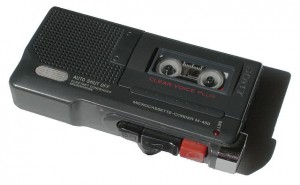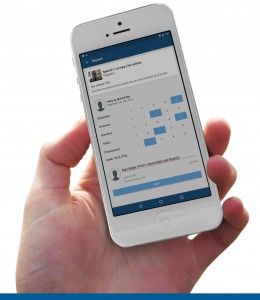
Why don’t we assess speaking as frequently as we assess writing, or written grammar, or written vocabulary? Because recording students frequently is cumbersome and having all students present in class several times in a semester is not practical, even more so in large groups of 30 or more.

Yet most of us would rank oral communication equal or higher than written communication as a goal in our courses.
If we value speaking, then let’s make oral practice and oral assessment an integral part of the curriculum. If we have too large a class to work with, then let’s find the tools to help with this.
Assessing speaking skills more frequently with Extempore
I formally assess and provide feedback on my students’ speaking twice a week. OK, I should disclaim that this semester I only have 62 students total, but if I had more I’d still do it once a week. How do I do this and how long does grading take? In a regular class, my students are first exposed to new vocabulary or grammar in structured input activities; they then practice with structured output activities that involve interaction in pairs or in small groups; and at the end of the lesson they produce an individual piece (written or spoken) that I use as evidence to assess their learning. On the days I choose to assess learning through spoken evidence, I ask them to open Extempore on their phones and answer to a prompt that I created before class when planning the lesson. The prompt is related to the structured output tasks they have completed already and it gives me evidence of how students can incorporate in their unscripted speech the vocabulary or grammar taught throughout the lesson.
Grading frequent oral assignments
Since these recordings are usually 30 to 60 seconds long, grading each set takes about an hour. I also use very simple rubrics and I only focus on the vocabulary or grammar that I want them to learn that day. For example, if the goal of the lesson is to talk about what they like with different expressions beyond the target language equivalent to the verb “to like”, my rubric has only two scores: one for how many of these expressions appear and another for how accurately they are used. On the weeks when I have major assessments to grade (compositions, exams, interviews), I give students my rubric and ask them to listen to their recordings and self-assess. Sometimes a simple pass/fail score is all that is needed.

We usually have plenty of evidence to assess our students’ learning in written communication (quizzes, written tests, essays, written homework), but when it comes to evidence of their speaking progress, we tend to rely on our impressions from how they speak (if they speak) during classroom interactions and one or two presentations or interviews. We give back the written pieces so that students can learn from our feedback, but we rarely record spoken evidence of their learning and ask students to keep track of it. We can’t expect the same level of development in spoken as in written language if we don’t invest the same amount of time in assessing their oral work as we do with their writing. It is not about assessing everything twice, once in speaking and once in writing. It's about choosing what we assess with written evidence and what we assess with spoken evidence.


